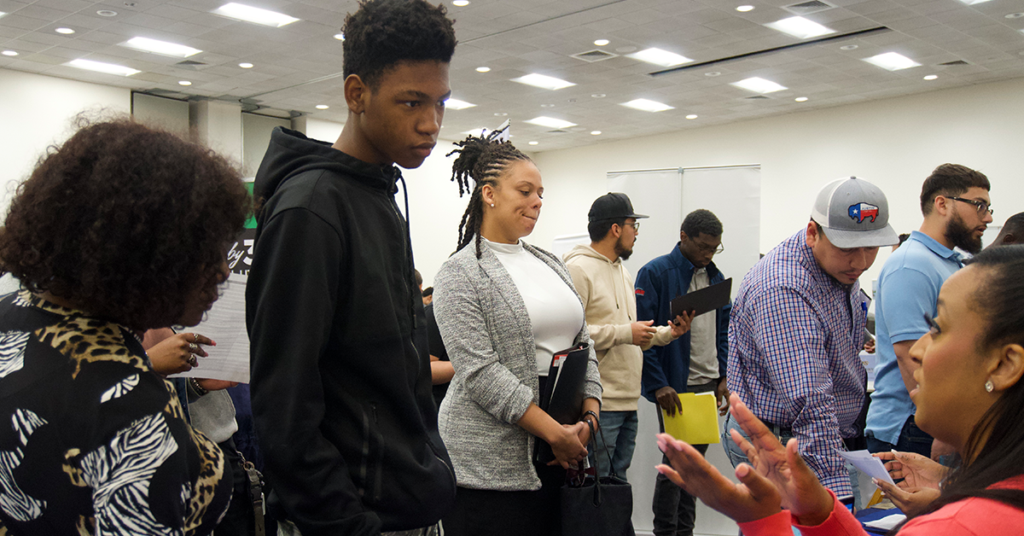More and more businesses are recognizing the value of a truly inclusive workforce, where differing abilities are seen as strengths, not limitations. Your Career, Your Choice, powered by Workforce Solutions, is a series that guides you through building your career step by step.
According to a Bureau of Labor Statistics report, as of 2024, people with disabilities made up about 13% of the U.S. population, yet their employment-population ratio remained significantly lower than that of people without disabilities. Across all education levels, unemployment rates are consistently higher for individuals with disabilities.
In Texas, professionals like Beth Painter of Whataburger and Myles Wallace of Peak Performers, a staffing firm, are leading efforts to create more inclusive workplaces. Both organizations are members of Disability:IN, a nonprofit that supports disability inclusion in the workforce.
“Companies thrive when it’s an inclusive environment. When you can tap talent from all kinds of different wells, it only makes good business sense,” said Beth Painter.
Benefits of Disability Inclusion:
Incorporating disability-inclusive practices isn’t just socially responsible—it’s good for business. Inclusive companies tend to experience:
- Better Financial Performance. A 2023 report from Accenture found that businesses that prioritize disability inclusion generate up to twice the economic profit compared to their peers. They also report higher revenues and improved productivity.
- Low Cost, High Return Accommodations. One of the biggest misconceptions about hiring individuals with disabilities is the cost of accommodations. In reality, most accommodations are simple and inexpensive. According to the Job Accommodation Network, 60% cost nothing, and those that do average only $500. These adjustments, such as flexible work hours, remote work, modified work equipment, or screen readers, are often one-time expenses that lead to long-term productivity and employee satisfaction. “A lot of times, accommodation requests come at little to no cost to the business,” explains Myles Wallace. Inclusive recruiting often means “very little adjustments to your current recruiting practices, and keeping an open mind throughout the process.”
- Greater Employee Retention. Employees with disabilities tend to stay with companies longer when supported appropriately. Retention rates for accommodated employees can reach 85% after one year, according to Focus on Autism and Other Developmental Disabilities.
- Customer Loyalty. People are increasingly looking to support companies that reflect their values. Businesses that practice inclusion not only attract talent but also win over customers by showing them they care. When a business “can show inclusiveness, people wanna come and spend their money there,” adds Beth Painter.
Creating inclusive workplaces isn’t just the right thing to do; it’s a smart, strategic move for businesses and job seekers alike. Watch Episode 4: Wants vs. Needs to reflect on what matters most in your career journey.
Explore in-demand careers and connect with top employers at upcoming Workforce Solutions hiring events. Register today to secure your spot and access career-building resources.




